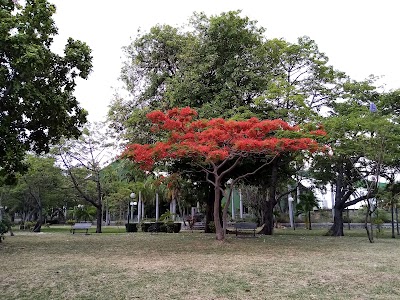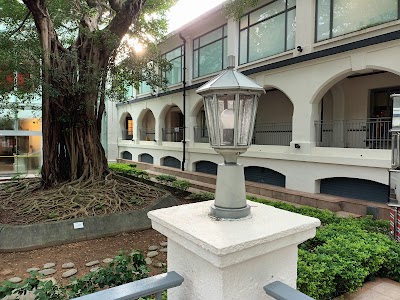Les Salines (Les Salines)
Overview
Les Salines, nestled in the Flacq district of Mauritius, is a captivating destination that seamlessly weaves together historical intrigue, natural beauty, and cultural significance. For travelers seeking a unique insight into the island's maritime heritage, Les Salines promises an unforgettable experience.
Historical Significance
Renowned for its salt pans, Les Salines played a pivotal role in Mauritius' economy during the colonial era. These meticulously crafted salt pans were essential to the island's trade and sustenance, transforming salt into a valuable commodity used for food preservation and even as a form of currency. As you explore this serene site, you'll find yourself transported back in time, where every step reveals the fascinating history of this remarkable place.
Ingenious Resource Utilization
The significance of Les Salines goes beyond its historical roots; it showcases the ingenious use of natural resources by early Mauritians. The traditional salt production techniques employed here are a marvel of engineering, leveraging the natural evaporation of seawater. Walking through the salt pans, you can almost envision the labor-intensive processes and skill required to produce salt in such abundance.
Natural Beauty and Environmental Importance
In addition to its captivating history, Les Salines is a haven of serene beauty and environmental importance. The salt pans create a stunning landscape where light and water dance amid traditional structures, offering endless opportunities for photography enthusiasts. The panoramic views present a striking contrast to the lush greenery of Mauritius’ tropical environment, making it a perfect spot for nature lovers and those seeking tranquility.
Modern Conservation Efforts
Les Salines invites visitors to appreciate its present-day significance as well. Modern conservation efforts are actively preserving this vital piece of Mauritius’ heritage. Engaging guided tours provide insights into the history of salt production, the area's natural environment, and ongoing preservation initiatives. These educational experiences are suitable for all ages, ensuring that everyone leaves with a deeper understanding of this unique locale.
Wartime Role
An intriguing aspect of Les Salines is its historical role during wartime. During World War II, the salt harvested from these pans was crucial for food preservation, supporting local populations and even allied forces. This historical dimension adds layers of significance to your visit, illustrating how this humble site contributed to larger global events.
Exploring Flacq
For the adventurous traveler, the Flacq district offers a wealth of additional activities and attractions. Known for its lively markets, visitors can immerse themselves in vibrant local culture and perhaps purchase renowned marine salt as a unique souvenir. The district also boasts exquisite beaches and opportunities for water sports, promising a diverse array of experiences for all.
Cultural Immersion
Nearby village life provides another enriching layer to your visit. Engage with friendly locals, explore traditional crafts, and savor local dishes for a taste of authentic Mauritian culture. This cultural immersion transforms your journey to Les Salines into a multifaceted experience, blending history with contemporary life.
Accessibility
Getting to Les Salines is convenient, thanks to a well-connected road network and the availability of local guides. Incorporating a visit to this site into your itinerary will add depth and variety to your Mauritian adventure, making it easily accessible from major points of interest.
In conclusion, Les Salines in Flacq, Mauritius, is a remarkable destination that harmoniously combines historical depth, natural beauty, and cultural richness. Whether you're a history enthusiast, a nature lover, or simply seeking a peaceful retreat, Les Salines offers something unique. As you stroll through the salt pans and inhale the distinctive salty air, you'll gain a newfound appreciation for this small corner of Mauritius that has played a significant role in its history and continues to symbolize resilience and resourcefulness.







